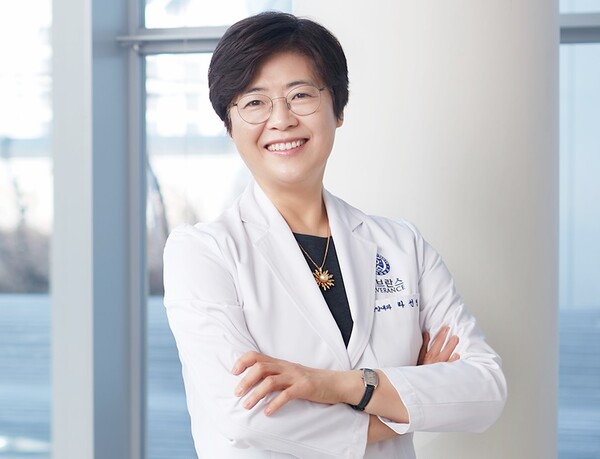
With the recent release of the results of the phase 3 studies -- KEYNOTE-859 and KEYNOTE-811 -- of the anti-PD-1 immunotherapy Keytruda (pembrolizumab), immunotherapy is becoming a backbone agent along with conventional chemotherapy in the first-line treatment of advanced gastric cancer, regardless of HER2 expression.
In Korea, the Keytruda combination will likely expand its indication to HER2-positive patients by the end of this year and to HER2-negative patients by the beginning of next year at the latest, providing more options for treating advanced gastric cancer in addition to the already licensed Opdivo (nivolumab) combination.
In particular, since September, the Opdivo combination has already received insurance benefits for the first-line treatment of HER2-negative advanced gastric cancer, prompting MSD, which owns Keytruda, to begin applying for its expanded indication early next year.
However, there are already voices of concern on the clinical front. Many issues need to be addressed to ensure patients can benefit from Opdivo and Keytruda on time, including improving reimbursement criteria and recognizing the compatibility of comorbidities.
Against this background, Korea Biomedical Review met with Professor Rha Sun-young of the Department of Oncology at Yonsei Cancer Center, one of the principal investigators of the KEYNOTE-859 and a leading expert in the field of gastric cancer treatment in Korea, to learn about the challenges and suggestions for improving the treatment environment for immunotherapy in advanced gastric cancer.
‘Diagnostic tests waste time and money. HIRA must recognize compatibility"

Professor Rha cited diagnostic testing as the first-factor confusing clinical practice. Currently, Opdivo, which is reimbursed for HER2-negative patients with a PD-L1 CPS of 5 or higher, uses the IHC 28-8 pharmDx test (hereafter 28-8) as its diagnostic test, while Keytruda uses the IHC 22C3 (hereafter 22C3) pharmDx test.
Opdivo must win recognition for 28-8, which it used in the CheckMate-649 study, while Keytruda should do so for 22C3, which it used in the KEYNOTE-859 and KEYNOTE-811 studies, which cause problems as they are also applied to their reimbursement standards identically.
According to Professor Rha, when a patient with stage 4 gastric cancer visits the hospital, the first thing they do is test for PD-L1 along with HER2. The rule of thumb is to test for HER2 first, but since more patients are negative than positive for HER2, and there is a treatment option called Opdivo for those who are negative for HER2, the PD-L1 test is done first to see if it can get reimbursement. At this time, the reimbursed diagnostic test is 28-8.
However, if Keytruda is introduced in Korea, there will be a problem with testing both 28-8 and 22C3. That’s because PD-L1 must be diagnosed with each companion test to get insurance coverage.
"As we can expect these problems, medical professionals are demanding that the two tests be recognized as compatible,” Professor Rha said. “Otherwise, they cannot avoid wasting time, money, and slides."
Another problem in the medical field is the possibility that reimbursement standards for Opdivo and Keytruda will be set differently.
Currently, Opdivo is reimbursed in patients with PD-L1 CPS 5 or higher, while Keytruda is likely to be reimbursed in patients with CPS 1 or higher or CPS 10 or higher. These cannot be arbitrarily unified, as they are based on the trial's design and the analysis results.
After all, regardless of the reimbursement standards of Keytruda, patients in CPS 1-10 will have no choice but to undergo both companion diagnostic tests to avoid treatment delays.
"Companion diagnostics are necessary to select the right patient for the right treatment," Rha said. “As an old saying goes, however, your belly button should never be bigger than your belly. Likewise, you shouldn’t waste too much time, effort, and money on companion diagnostics."
For this reason, European countries reported reimbursing all patients with CPS 5 or higher regardless of which companion diagnostic device is used. However, Rha emphasized that CPS 1 is a more appropriate criterion, as CPS 5 is highly subjective.
"If the effect is too weak in CPS 1 and above, we should not say so. However, in the case of Keytruda, we already have data showing significant improvement in CPS 1 and above as well as all-comers," she said. “Reimbursing patients in CPS 1 and above for any test will simplify future clinical use."
Besides, most clinicians want as many patients with gastric cancer as possible to benefit from immunotherapy, she added.
The current consensus is that adding immunotherapy to conventional chemotherapy in gastric and esophageal cancer can increase efficacy without significantly increasing toxicity.
At the European Society for Medical Oncology Annual Congress (ESMO 2023) in October, health-related quality of life (HRQoL) results from the KEYNOTE-859 study were presented, showing that overall HRQoL in the Keytruda arm was similar to chemotherapy, with more favorable results in the Keytruda arm for quality-of-life pain measures.
"For example, cytotoxic antineoplastic agents are effective but have severe side effects that make patients suffer too much, but adding immuno-antineoplastic agents improves efficacy and does not increase toxicity," Professor Rha said. "The cost is an issue. If this is resolved, immuno-antineoplastic agents should be readily and easily available to more patients with gastric cancer."
‘Reimbursement’s blind spot exists for MSI-H patients. We must find a solution.’
On the other hand, Professor Rha pointed out that PD-L1 expression alone is not enough to decide immunotherapy use.
Among PD-L1-negative patients, a subset of patients with high-frequency microsomal instability (MSI-H) may have excellent therapeutic responses to immunotherapy. These patients are currently ineligible for Opdivo because they do not meet the PD-L1 expression threshold, even if they are diagnosed with MSI-H.
"MSI-H patients account for 3-5 percent of advanced gastric cancer patients,” Rha said. “Since the number of patients is extremely small, there is no global phase 3 clinical data for MSI-H patients, so there is no way to get reimbursement in Korea."
Keytruda monotherapy has been licensed in Korea for the second-line treatment of metastatic gastric cancer patients with MSI-H or mismatch repair defects (dMMR). However, this indication was only recently included in a lump sum reimbursement application for 13 indications of Keytruda submitted to the Health Insurance Review and Assessment Service (HIRA).
The reimbursement review process has not progressed much, meaning that even if a patient with advanced gastric cancer is diagnosed with MSI-H, there is currently no way to access the immunotherapy as the first- or second-line treatment with insurance coverage.
"That's why we need to expedite coverage for Keytruda as a monotherapy indication when MSI-H is diagnosed by biopsy," Rha said.
She also pointed out the problems when MSI-H patients use immunotherapy without reimbursement in their first-line treatment.
According to clinical practice in Korea, when patients who do not meet the reimbursement criteria use Opdivo without reimbursement, concurrent chemotherapy is also non-reimbursable. This makes it even more difficult for patients to make a choice, as they have to pay for the chemotherapy in addition to Opdivo.
"It doesn't make sense that a patient's use of Opdivo on a non-reimbursement basis would result in the non-reimbursement of their existing chemotherapy," Professor Rha said. "We will ask the academic society and the Opdivo’s developer to keep the existing chemotherapy on a reimbursement basis in such cases while making Opdivo available at 100 percent out-of-pocket."

